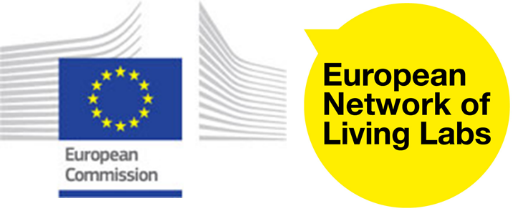Report - 2nd Workshop on Flagship 7 of the European Commission’s Zero Pollution Action Plan
The 2nd workshop of European Commission- European Network of Living Labs (ENoLL) Joint Working Group on Digital for Sustainability, including Zero Pollution was held online on 12 September 2022. The objective was to progress the discussion on how industry and public authorities can draw on Living Labs to develop and scale up solutions to zero air/water/soil pollution, including digital ones.
This followed from the 1st workshop and launch event, held in April 2022.
During the workshop the participants drawn from industry and academia were divided into three groups, on each working on air, water, and soil. Participants were led by an invited technical expert and asked to discuss and exchange views around a set of questions. The answers collected were grouped in the following clusters:
Air session led by Professor Zisis Samaras, Aristotle University of Thessaloniki:
- Increase impacts through citizen empowerment and capacity building
- Develop standardised metrics for assessing impact (digital sustainability)
- High granularity monitoring and high-definition modeling are needed to support decision making
- Increase the readiness of the ecosystems through large-scale demonstrators
Water session led by Andrea Rubini, Water Europe:
- Adaptive Technologies are required
- Effectiveness of inclusive and social solutions
- Break silos and communicate
Soil session led by Muriel Mambrini-Soudet, Director of Research at Inrae, the French National Research Institute for Agriculture, Food and the Environment:
- Agree on common definitions of soil health and thresholds of pollution by ecosystem type for better policy design
- Evaluate and monitor of the pollutant and socioeconomic costs of soil pollution
- Invest in the co-design of experimental loops for engaging in experiments
- Ensure engagement for cooperation among the value chain and between actors
- Promote awareness of shared values of soil, soil health, soil services, SOILL
The final workshop to be held as part of the process of defining of the set of recommendations for the use of Living Labs to address zero pollution took place on 21 September during ENoLL’s annual Open Living Lab Days in Turin. An update on Flagship 7 of the European Commission’s Zero Pollution Action Plan was presented to the Zero Pollution Stakeholder Platform on 11 October.
More info:
What is the Flagship 7: Living Labs for green digital solutions and smart zero pollution?
In 2021, the Commission together with partners, launched Living Labs for green digital solutions and smart zero pollution to engage with regional and local authorities (for example through the Living-in.eu community) and other stakeholders to help develop local actions for green and digital transformation which contribute to the European Digital Green Coalition and the European Climate Pact. By 2023, the Living Lab members will develop recommendations on using for a climate and environment-friendly use of digital solutions to accelerate zero pollution efforts, with a particular focus on citizen engagement.
What is the Joint Working Group on Digital for Sustainability, including Zero Pollution?
The overall objective of the JWG is to define a set of recommendations by the end of 2022, including a list of KPIs to assess their effectiveness. These recommendations will help local and regional authorities to achieve a climate and environmentally-friendly use of digital solutions to accelerate zero pollution efforts. The recommendations will also serve to raise cities’ awareness of the benefits of using living labs to become green and digital, with a particular focus on citizen engagement, and living labs they can be best used and their impact maximised.








